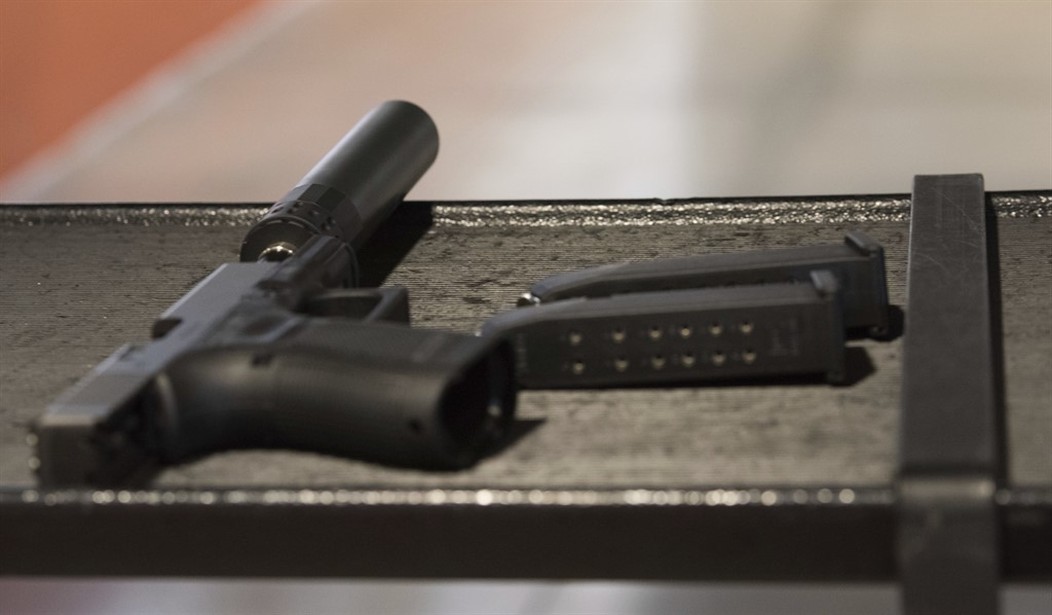Suppressors are items regulated by the National Firearms Act, even though they're not firearms. They're safety devices, though your average anti-gunner thinks they're just like what they see in a James Bond movie.
They're not.
But regardless of what they are or aren't, they're still regulated.
A challenge to those regulations has been working its way up the court system without much success. Sure, the DOJ is rethinking its position on the case, but it's also not the first time the courts have upheld suppressor restrictions.
Yet an interesting piece brings up some of the issues with the regulations. Part of what's interesting is that it's from Bloomberg Law, which still baffles me, but they actually published a column by Four Boxes Diner's Mark Smith...and he's got a good point on a big issue with these restrictions.
Criminal defendant George Peterson asked the court on March 5 to rehear its decision en banc; the next day, the court ordered the government to respond by March 17. Acting US Attorney for the Eastern District of Louisiana Michael Simpson initially affirmed the panel’s interpretation of our nation’s gun laws, questioning whether a “pillow or a plastic soda bottle taped to the barrel of a firearm” when used to reduce noise “too, become weapons.”
According to the Department of Justice and the ATF, the answer is a resounding “yes.” Any object—pillow, soda bottle, or otherwise—when used “for silencing, muffling, or diminishing the report of a portable firearm” is considered a suppressor and, by extension, a firearm as explicitly defined under the National Firearms Act.
It appears that the DOJ has realized this mistake. On March 20, it filed a subsequent motion requesting the court delay its ruling while the government reconsiders its position on Peterson’s request, citing President Donald Trump’s executive order protecting Second Amendment rights.
It’s exactly this loose thinking that is a gift to gun restriction advocates. Many components or parts that courts have wrongly characterized as “accessories” aren’t strictly essential for a firearm to “go bang,” but are nonetheless essential to the exercise of the Second Amendment.
The straightforward application of this logic could allow the government to ban popular components that are important to gun owners, including triggers, scopes, or sights of any kind. At the very least, it opens the door to questionable regulations that make suppressors and other components unreasonably difficult and expensive to obtain.
Smith isn't wrong.
First, let's consider the bump stock ban for a moment. Yes, it was struck down, but not because it was against the Second Amendment, only that it required the ATF to try to unilaterally redefine a term. It didn't actually protect bump stocks from legislation.
But perhaps more important was why we got the ATF's ban in the first place.
President Donald Trump directed them to do it, but did so with a certain degree of blessing from the National Rifle Association. The NRA caught a lot of heat over that, and not without cause, but the motivating factor there was a bill working its way through Congress with bipartisan support that would have banned not just bump stocks but potentially could have been used to ban aftermarket triggers entirely. Trump's executive order, which I still disagree with, was intended to thwart that particular effort.
So Smith's attestation that restrictions on suppressors could be used to justify restrictions on other accessories isn't out of line.
Especially considering how many places have an arbitrary ban on detachable magazines with capacities that anti-gun lawmakers think are too high. Sure, they're being challenged, too, but the arguments in and of themselves are no different, and that's where we run into a problem.
It's just one of many problems we run into when people try to restrict the right to keep and bear arms.







Join the conversation as a VIP Member